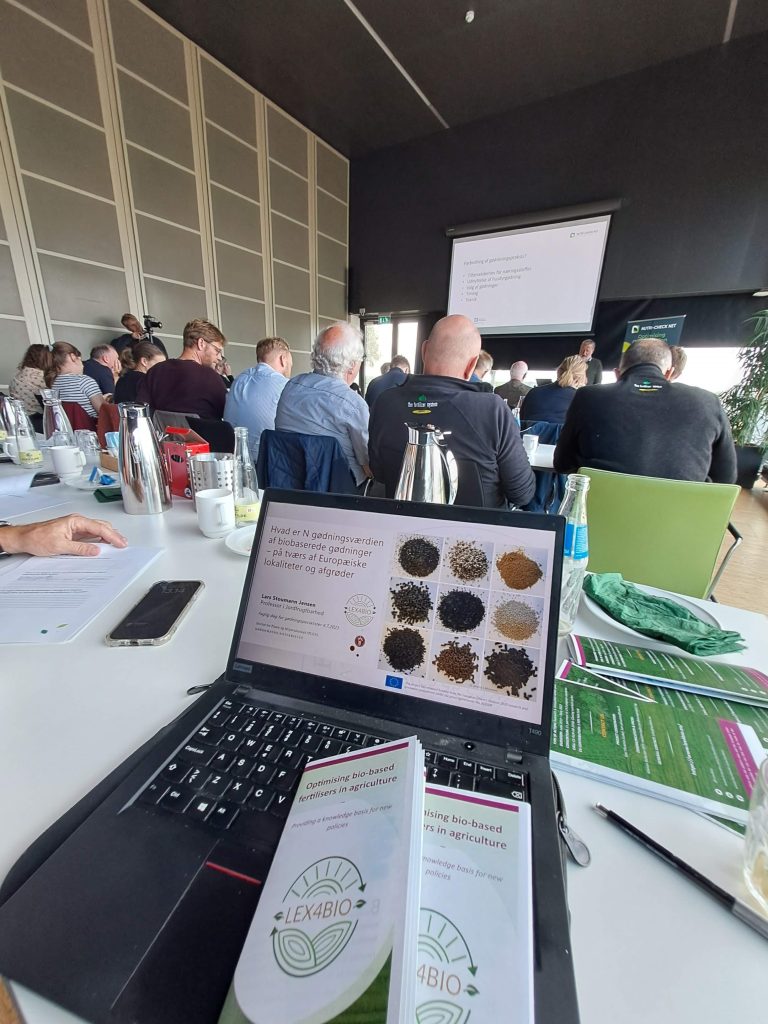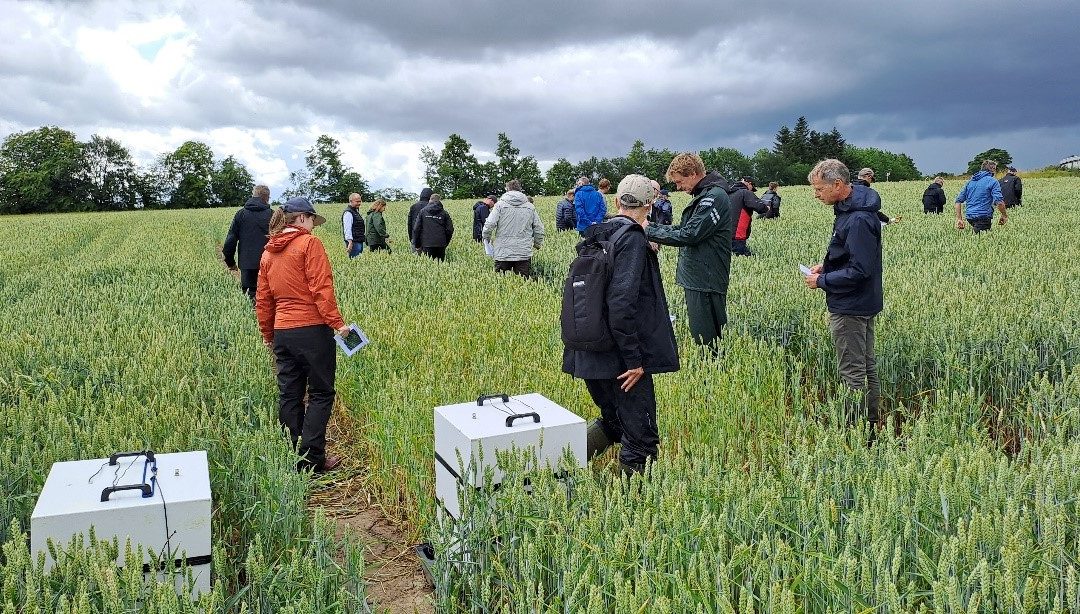LEX4BIO NDFs in Denmark are coordinated by the University of Copenhagen and have been traditionally organized in collaboration with the agricultural organization SEGES (the Danish National Agricultural Advisory and R&D center), as part of a cross-sectoral Fertilizers Network comprising professionals with particular interest and responsibilities in fertilizers, fertilization strategies and related technologies. In June or July each year, the members of the Fertilizers Network meet for a full-day workshop to share new ideas, results and discuss current challenges and novelties in the field of fertilization, to include technologies for fertilizer production and application.
In 2023, the group met on 4th of July for the last event of LEX4BIO NDF series, at the experimental site of the advisory organization VKST in Zealand, eastern Denmark. The event was attended by 30 participants. During the morning experimental field tour, the group saw trials with different catch crop strategies for producing biomass to be harvested for use as feedstock in anaerobic digestion, and hence producing digestate BBFs. They also inspected field trials investigating the impact of different fertilization strategies (including BBFs) on N2O emissions. The afternoon welcomed talks and discussion sessions, where Lars Stoumann Jensen informed about LEX4BIO WP4 field trial results, yielded over a two-year period, on BBF N fertilizer value throughout 5 field trial sites in Europe. Workshop participants asked questions about the impact of new BBF on N losses, including leaching. Fertilizer company YARA representatives expressed their appreciation that WP4 team investigated these issues in such thoroughness (one of their products is included in the field testing) that BBF has now become a main business strategy for them. The discussion illustrated that the current activities of LEX4BIO, addressing important climatic, environmental and agronomic issues, are of high interest.
In conclusion, it seems worth highlighting that the NDF workshops were planned to ensure effective transfer of knowledge about LEX4BIO project’s key outcomes and findings that are considered of relevance to both Denmark and the EU. Furthermore, the workshops program is built in such way that it always strives to include information which is relevant to each of the stakeholder groups as well as insights into the legal framework for nutrients recovery and market placing.
Photos from the morning experimental field tour:
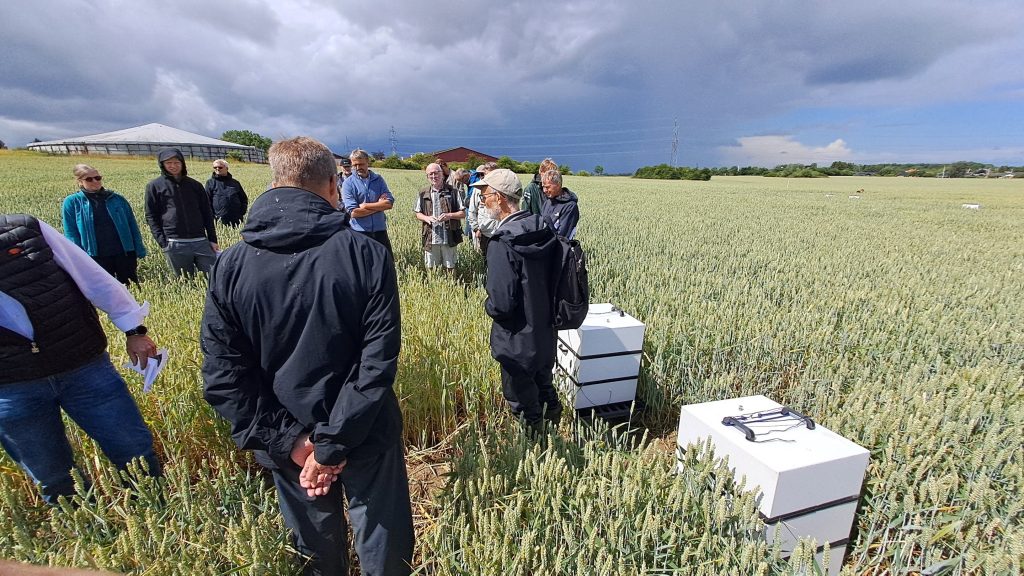
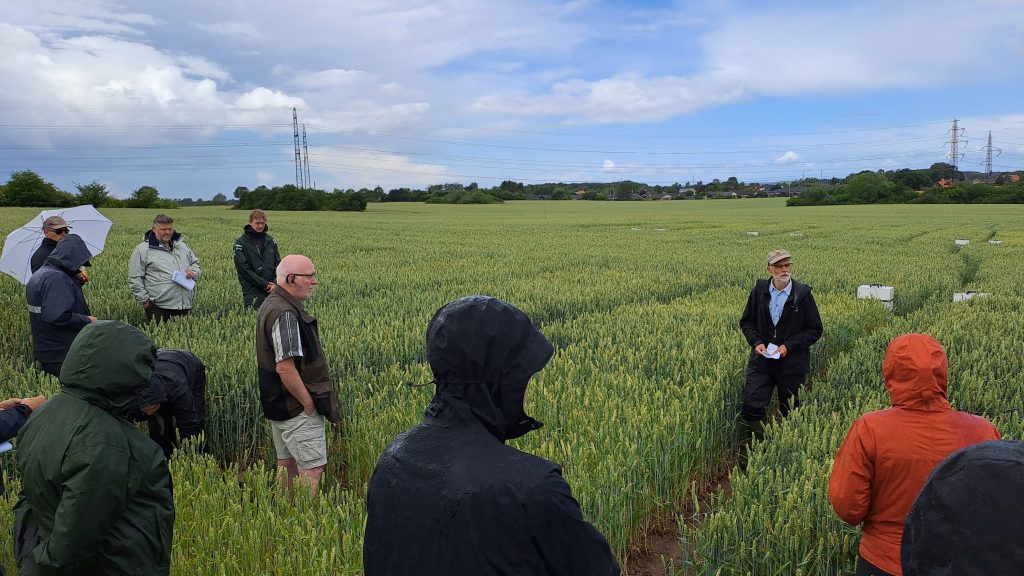
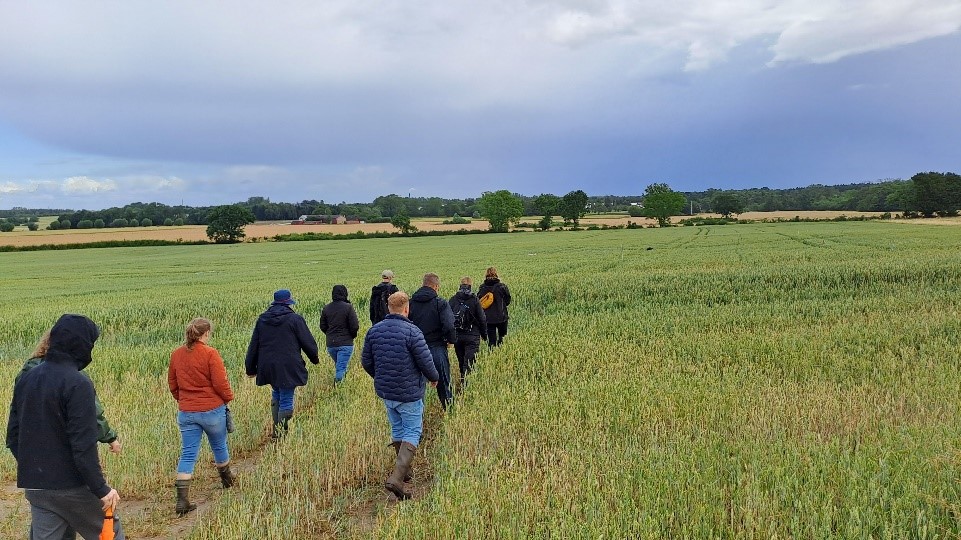
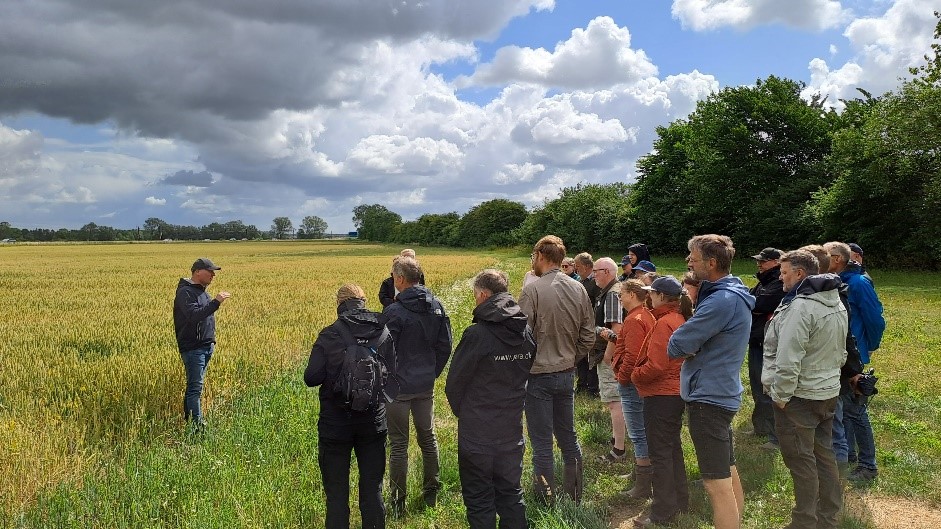
Back in the meeting room after lunch, when Lars Stoumann Jensen presented about LEX4BIO field trial results and handed out the LEX4BIO leaflet:
